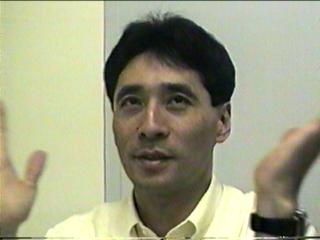|
an inTeRlink feature
article
8-19-97
Fukushi Recreation... TR in Japan
by Hiro Chino, MWU, Nishinomiya, JAPAN, Email: hattori@taiyonoie.or.jp
<
 |
In the U.S.,
it's called therapeutic recreation. In Japan, we say
fukushi Recreation. Although both terms are quite dissimilar,
concepts between fukushi and therapeutic recreations
may be quite similar.
"Fukushi" means
welfare. So, fukushi recreation means recreation
as a process carried out in social welfare settings,
i.e., nursing homes, senior citizen's centers, mental
health hospitals, rehabilitation centers, etc.
In 1987, Japanese
government had started to issue a national license of care
workers working for secondary care of various disabled people
and older people. They need to study a variety of subjects
such as social welfare, psychology, medical care, disabilities,
senility, as well as recreation and its services. They learn
a basic concept of recreation, leisure, and play, a brief
history of recreation movement, and TR. This movement has
facilitated a development of fukushi recreation. |
Most fukushi recreation
workers (a licensed by the National Recreation Association
of Japan, like NRPA in the U.S.) works for older people in
nursing homes which have been increased in its number throughout
Japan. They are trained to demonstrate the ability to apply
theories of group dynamics through group activities such
as sports, games, songs, and dance.
In Japan, the First
Fukushi Recreation Forum will be held at Yokohama Rapport
near Shin-Yokohama (first stop from Tokyo on Tokaido Bullet-train)
from September 20 through 22, 1997. It may be said that this
meeting is a beginning of Fukushi Recreation and TR movement
in Japan. There will be research symposium, exhibition, and
on-site institutes. Participants will discuss effects of
TR programs, assessment tools useful for TR, and various
cases in TR.
Although there is
a comprehensive team for each client in medical settings,
nursing homes, and rehabilitation settings, none of fukushi
recreation workers are included so far. Since many recreation
workers (most are volunteers) have just started client-centered
programs, some kind of results in TR may appear soon.
All rights reserved. |